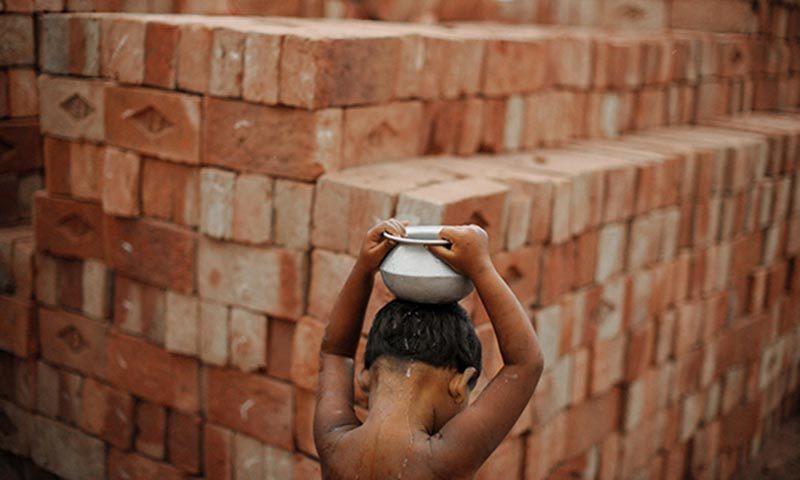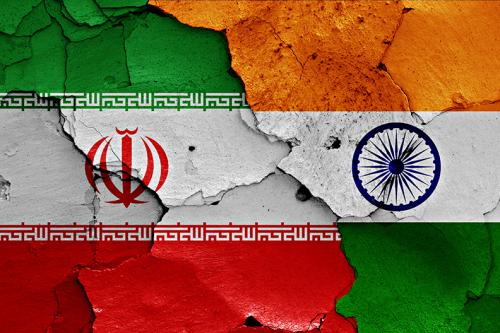There are an estimated 2,058,200 people in modern slavery in Pakistan – 1.13% of the entire population. In Pakistan, debt bondage is the most prevalent form of slavery which is mainly found in the brick making, agriculture, and carpet weaving industries, according to Global Slavery Index. Pakistan was ranked sixth out of 167 countries in the prevalence of modern slavery. With 62.47% of the population vulnerable to become amongst those in modern slavery, Pakistan has to take drastic measures to ensure that their ranking does not go up.
Bonded labor
“The provinces of Punjab and Sindh are hotspots of bonded labour, which is mainly found in the brick making, agriculture, and carpet weaving industries. While official statistics are not available, recently it was estimated that the brick kiln industry employs around 4.5 million people across the country,” the 2014 Global Slavery Index report
Debt bondage, debt slavery, and bonded labor are all the names given to this form of slavery which still prevails in this country. Bonded labor can be defined as, a person’s pledge of labor or services as security for the repayment of a debt or other obligation. Considering the definition, it seems fair that a person offers their services over money, however, the men, women, and children involved in this act cannot seem to find a way out and end up serving life sentences.
Read more: The downhill slope in Pakistan’s industrial development: Who is to blame?
A small loan, taken out by a laborer for a hospital bill or a small wedding soon spirals out of reach. The landlord finds every excuse to trap the workers. They are threatened in every manner possible to prevent them from running away or asking for help. and eventually, they bow down to their new “masters” making them victims of numerous human rights violations whilst simultaneously preventing them from any possibility of aid or help. Many of these modern day slaves end up in the brick kilns and other industries which refuse to provide them etiquette resources.
Brick kilns and modern slavery
The old and weak, the young and hopeless, all toil day in day out, for not less than 16 hours daily to get, at best, Rs240 from their owners.
Pakistan Institute of Labour Education and Research estimates that there are 11,000 brick kilns in Pakistan. In Hyderabad alone, approximately 150 brick kilns employ thousands of workers to produce the valuable material used for the construction of houses, many of which are there because of bonded labor. But whether the workers work because of debt bondage or not the conditions they work in and the conditions they are provided with to live in, makes one think about how these people still carry on doing what they do.
“Women are prepared to work at very low wages in rural areas,…The environment is very bad for these women, especially their children.” Ishtiaq Ahmad, a social activist
The tough life at the Kilns is exacerbated by a lack of toilet facilities, no supply of drinkable water, and exposure to harmful gases emanating from furnaces which also raise temperatures to an unbearable extent. According to the report prepared by the Sustainable Development Conference in 2009, from six selected brick kiln sites, more than half of the kiln workers live below the poverty line; they live on the site. They lack running water at home; latrine, proper drainage and all depend upon fuelwood for cooking. The workers access to health and education is limited. Most workers rely on private doctors.
Somewhere between two-fifths to two-thirds of all the working children in Pakistan toil in brick kilns. According to UNICEF estimates, it comes to around 250,000 children.
On average, workers have to work for 11-13 hours and while the workers are not organized, the government representatives from the labor department, environmental protection agency or any other corresponding agency do not usually visit the kilns for monitoring purposes thus there is little institutional contact. Over 250,000 children work in brick kilns across the country and end up growing in these environments.
Actions speak louder than words: Azad Nagar
Bonded labor should have ended in Pakistan after the Bonded Labour System (Abolition) Act was passed in 1992. However the landlords, who should have been prosecuted, instead, operate freely. The untiring efforts of NGO’s such as the Sindh Federation of the Bhatta Mazdoor Union and Green Rural Development Organization among others resulted in many movements and the creation of places like Azad Nagar Hari Camp in Tando Hyder, Hyderabad.
“The concept behind Azad Nagar was of a transit camp where freed bonded laborers would come and stay before moving on to where a job would take them,” Ghulam Haider, co-founders of GRDO
Azad Nagar means land of the free, bought in 2006 by Green Rural Development Organisation with the help of Action Aid, it is a small, marked settlement around 200km north of Pakistan’s coastal city of Karachi. More than 100 families live there in houses made of clay and straw that lack electricity and running water. A small temple serves as a place of worship for the Hindu-majority who live here.
With projects like these, there does seem to be a light at the end of the tunnel however until and unless there is more support especially from the government the tunnel seems too long to tread and the light seems to move away. This issue has to be brought up more frequently before the flame of hope extinguishes forever.
Possible solutions
“The government [needs to ensure that] the law is adequately implemented.” Advocate Imran Shafique.
Firstly Child labor must be eliminated from the equation. The minimum age for a full-time job at a kiln or any other hard labor workplace must be raised to 16 years in line with the provisions of Article 25-A of the Constitution and the corresponding law – Punjab Free And Compulsory Education Act 2014. Owners should also be required to get workers registered with the social security department and Employees’ Old-Age Benefits Institution. The Supreme Court’s order of July 2013 had directed the Punjab government to register brick kiln workers for social security and that must be monitored and implemented effectively.














